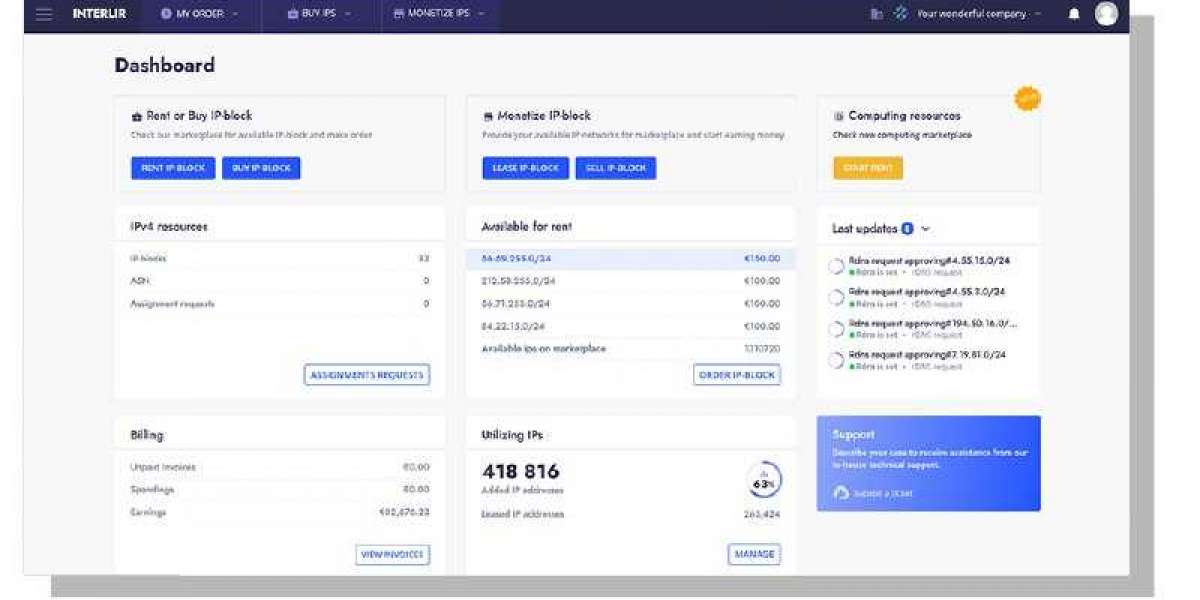Chicken Road: The High-Stakes Game of Casino Superstition and Strategy
The air in the casino is thick with anticipation, a palpable tension that hums beneath the clatter of chips and the whirring of slot machines. Amongst the flashing lights and the alluring promise of riches, a curious phenomenon emerges: Chicken Road. It's not a physical path, but rather a behavioral pattern observed among gamblers, particularly in games of chance. It's a dance between superstition, strategy, and the ever-present fear of losing, and understanding it offers a unique glimpse into the psychology of the gambler. This article delves into the intricacies of Chicken Road, exploring its origins, motivations, variations, and its impact on both individual players and the casino ecosystem. We'll uncover the rationalizations and irrationalities that drive this behavior, offering insights into how to recognize it, and perhaps even how to use that knowledge to your advantage (or at least, mitigate its potentially negative effects).
What is Chicken Road? Defining the Retreat
Chicken Road, in its essence, is the path a gambler takes when they perceive the odds turning against them. It's characterized by a sudden shift in betting patterns, often leading to a more conservative approach, smaller wagers, or even a complete withdrawal from the game. The term itself implies a sense of cowardice, a lack of conviction in the face of adversity. However, the reality is often far more complex than simple fear.
Instead of blatant cowardice, Chicken Road is often a result of a psychological calculation, however flawed it might be. A player might feel they've had a 'bad run' and believe their luck has run out. They might have a predetermined loss limit and, upon reaching it, adhere to a strategy of playing smaller bets to simply prolong their time in the casino. Or, they might misinterpret patterns in the game, believing a trend has shifted against them.
Consider a roulette player who has been betting on red and experiencing a streak of black. They might interpret this as a sign that red is "cold" and switch to betting on black, or reduce their bet size drastically, fearing further losses. This is Chicken Road in action. It’s a reaction to perceived negative momentum, driven by a desire to minimize losses and protect remaining funds.
The Psychology Behind the Walk: Fear, Superstition, and Strategy
Understanding Chicken Road requires a deeper dive into the psychological factors that influence gamblers. Fear of losing is, of course, a primary driver. The sting of a losing streak can be emotionally potent, triggering anxiety and a desire to avoid further pain. This fear can override rational decision-making, leading to impulsive actions like Chicken Road.
Superstition also plays a significant role. Many gamblers believe in luck, omens, and rituals that influence the outcome of games. A perceived "bad sign" – a certain dealer, a particular seat, a sequence of numbers – can trigger a retreat down Chicken Road. These superstitions provide a sense of control in a fundamentally unpredictable environment.
However, Chicken Road can also be a manifestation of a (perhaps poorly executed) risk management strategy. A disciplined gambler might set loss limits and stick to them, reducing their bets or stopping altogether when those limits are reached. While this might appear like Chicken Road from an outside perspective, it's actually a pre-planned and rational response to a losing situation. The key difference lies in the pre-determination and logical basis of the decision. A true "Chicken Road" player reacts impulsively, driven by emotion rather than a well-defined plan.
| Factor | Description | Impact on Chicken Road |
|---|---|---|
| Fear of Losing | Anxiety and discomfort associated with losing money. | Triggers a desire to minimize losses, leading to conservative betting. |
| Superstition | Belief in luck, omens, and rituals. | "Bad signs" prompt a withdrawal from the game or reduced bets. |
| Risk Management | Pre-planned strategies for managing losses. | Disciplined adherence to loss limits may appear as Chicken Road. |
The Games Most Susceptible: Where Chicken Road Thrives
While Chicken Road can manifest in almost any gambling scenario, certain games are more prone to triggering this behavior than others. Games with perceived patterns, long streaks, or high volatility tend to be fertile ground for Chicken Road.
Roulette: The seemingly random nature of roulette, coupled with the potential for long streaks of red or black, makes it a prime candidate for Chicken Road. Players often interpret these streaks as a sign of changing luck and react accordingly.
Baccarat: Baccarat also features streaks (Player vs. Banker) that can lead to Chicken Road behavior. Players might switch their bets based on perceived momentum, or reduce their stake after a series of losses.

Craps: The complex rules and various betting options in craps can be overwhelming, particularly for novice players. A series of unfavorable rolls can quickly lead to confusion and a retreat down Chicken Road.
Poker: Although poker involves skill, even experienced players can be susceptible to Chicken Road, particularly during periods of "bad beats" or perceived unfavorable variance. They might tighten their play, become overly cautious, and miss opportunities.
Blackjack: While strategy in Blackjack can mitigate some risks, a string of bad cards or poor dealer hands can make players prone to playing safe by doubling down less and taking fewer risks.
Games of skill, like poker, are less prone to true Chicken Road, as skilled players can often rationally adjust their strategy to mitigate losses. However, even the best players are not immune to the emotional impact of a losing streak, and can sometimes fall victim to Chicken Road.
Variations on the Theme: Different Paths Down Chicken Road
Chicken Road isn't a monolithic behavior; it manifests in various forms, depending on the player's personality, bankroll, and risk tolerance. Here are some common variations:
The Tightening Player: This player starts out playing relatively aggressively, but gradually reduces their bet sizes as they experience losses. They become increasingly cautious, playing only the safest bets and avoiding any form of risk.
The Switching Player: This player is constantly changing their betting strategy, trying to "outsmart" the game. They might switch between different bets, chase losses, or try to predict patterns that don't exist.
The Table Hopper: This player leaves one table after another, searching for a "lucky" game. They believe that changing tables will magically improve their fortunes.
The Premature Cash-Out: In games where players can cash out early (like certain types of poker tournaments or sports bets), this variation involves cashing out prematurely due to fear of further losses, even if the odds still favor them.
The "Chaser": This player aggressively raises their bets in an attempt to recoup losses, often betting beyond their means. While seemingly the opposite of retreating, it's driven by the same fear – the fear of accepting the loss and walking away. It's a desperate gamble that often leads to even greater losses.
Each of these variations is driven by a different set of beliefs and motivations, but they all share the common thread of reacting to perceived negative momentum in a way that is ultimately detrimental to their chances of winning.

Recognizing Chicken Road: Spotting the Signs in Yourself and Others
Being able to recognize Chicken Road, both in yourself and in other players, is a valuable skill. It can help you avoid falling into the trap yourself, and it can also provide you with insights into the behavior of your opponents.
Signs of Chicken Road in Yourself:
You find yourself making smaller bets, even when you know the odds are in your favor.
You're constantly changing your betting strategy, without a clear rationale.
You're overly concerned with avoiding losses, rather than focusing on maximizing your wins.
You're feeling anxious and stressed about the game, even when you're not losing a significant amount.
You're attributing your losses to bad luck or external factors, rather than your own decisions.
Signs of Chicken Road in Others:
They suddenly reduce their bet sizes after a series of losses.
They start playing (Chicken Road 365 link for more info) much tighter than they were before.
They become hesitant to make aggressive moves.
They frequently check their bankroll.
They appear nervous or uncomfortable.
They verbalize superstitions or blame bad luck.
By paying attention to these signs, you can become more aware of the psychological forces at play and make more informed decisions.
Exploiting Chicken Road (Ethically): Using Knowledge to Your Advantage
While preying on other players' weaknesses is generally considered unethical, understanding Chicken Road can provide you with an edge without resorting to such tactics. Here are some ethical ways to use this knowledge to your advantage:
Adjust Your Strategy: If you notice an opponent exhibiting Chicken Road behavior, you can adjust your strategy accordingly. For example, if they're playing tighter, you can become more aggressive, knowing that they're less likely to call your bets.
Stay Calm and Rational: By recognizing Chicken Road as a psychological phenomenon, you can avoid falling victim to it yourself. When facing a losing streak, take a deep breath, review your strategy, and make rational decisions based on the odds, rather than reacting emotionally.
Identify Overly Cautious Players: In poker, players exhibiting chicken road will often fold hands they should play, and bet less aggressively when they have a strong hand. Knowing this can allow you to steal blinds and pots more effectively.
Avoid Tilt: Recognizing when you are exhibiting signs of chicken road can also help avoid "tilt". Take a break, reassess, and avoid making rash decisions driven by fear or frustration.
It's important to emphasize that exploiting Chicken Road should be done ethically and with respect for other players. The goal is not to take advantage of their weaknesses, but rather to make more informed decisions based on their behavior.
Breaking Free: Overcoming the Urge to Retreat
Ultimately, the best way to deal with Chicken Road is to avoid it altogether. This requires a combination of self-awareness, discipline, and a solid understanding of the game you're playing.
Here are some tips for breaking free from the urge to retreat:
Set Realistic Goals: Don't expect to win every time you gamble. Set realistic goals for your sessions and be prepared to walk away when you reach them.
Manage Your Bankroll: Only gamble with money you can afford to lose. Set a budget for each session and stick to it.
Understand the Odds: Know the odds of the game you're playing. This will help you make more informed decisions and avoid falling prey to superstitions.
Develop a Strategy: Have a clear strategy for how you're going to play. This will help you stay focused and avoid making impulsive decisions.
Stay Calm and Rational: When facing a losing streak, take a deep breath and avoid reacting emotionally. Stick to your strategy and make decisions based on the odds, not your fear.
Take Breaks: If you're feeling stressed or anxious, take a break from the game. This will help you clear your head and avoid making rash decisions.
Know When to Quit: The most important thing is to know when to quit. If you're consistently losing, or if you're feeling overwhelmed, it's best to walk away and come back another day.
Chicken Road in the Modern Casino: The Impact of Online Gambling
The rise of online gambling has further complicated the phenomenon of Chicken Road. The anonymity and convenience of online casinos can exacerbate existing tendencies, making it easier for players to succumb to impulsive behavior. The speed of online games can also amplify the emotional impact of losses, leading to quicker and more dramatic shifts in betting patterns.
However, online gambling also offers opportunities for self-monitoring and control. Many online casinos provide tools for setting deposit limits, loss limits, and time limits. These tools can help players stay within their budget and avoid falling victim to Chicken Road. Furthermore, the availability of online resources and communities can provide players with access to information and support, helping them develop more rational gambling habits.
The future of Chicken Road in the modern casino will likely be shaped by the ongoing interplay between technology and psychology. As online gambling continues to evolve, it will be crucial for players to develop the self-awareness and discipline necessary to navigate the challenges and opportunities it presents.





